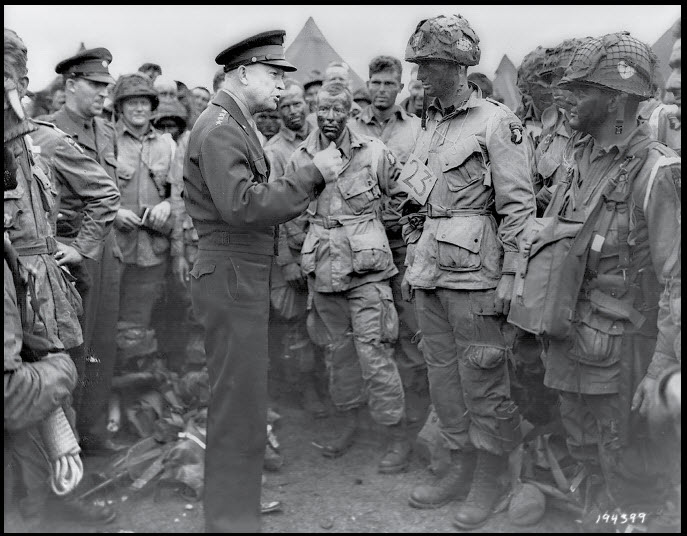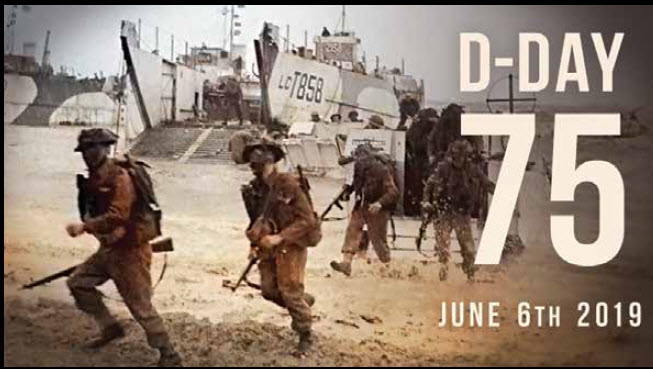All Things Soldier: D-Day, A Decision To Defy The Demonic
 By: Ali Elizabeth Turner
By: Ali Elizabeth Turner
June 6th marks the 75th anniversary of one of the most miraculous military campaigns in human history, and its historical import was of biblical proportions. On that day in 1944, Allied forces under the command of General Dwight D. Eisenhower stormed the beaches and turned the tide of World War II. It was the largest seaborne invasion ever, and has been the topic of numerous books and films, including The Longest Day and Saving Private Ryan. To his troops, Ike said simply, “The eyes of the world are upon you. The hopes and prayers of liberty-loving people everywhere march with you.”
The Normandy beach was divided into five sections, entitled Utah, Omaha, Gold, Juno, and Sword. To this day, if you ever hear of anyone being referred to as having been “on the beach,” it means they were a part of the invasion. Those brave ones are dwindling in numbers daily.

Recently, a fellow BNI member, Amy Fiscus, related to me that when she went to Normandy, tears started to pour down her cheeks, and she wasn’t even aware that she had begun to cry until much later. I have heard of vets making pilgrimages to commemorate the sacrifice of their forebears and being utterly overwhelmed by the gravity of what occurred there. This was and still is the Greatest Generation, and what they did all over the globe to stop one of the worst combined acts of satanic terrorism ever, will not be matched any time soon.
So, let’s talk about the “decision to defy the demonic.” Is that just a bunch of “Ds” slung together in order to make an alliterative title, or is that what they were up against? Well, if you believe the research of historian Eric Kurlander, author of Hitler’s Monsters, the questions he raises below make perfect sense and will give you the answer as to why thousands of men from several nations poured onto the beach 75 years ago:

Given these political antecedents, should we be surprised that among Hitler’s inner circle were men who practiced astrology, wanted to resuscitate pagan gods, or considered themselves magicians? That Hitler himself, in contemplating how best to manipulate the masses, apparently read a parapsychological tome called Magic in which he underlined sentences such as ‘Satan is the fertilising, destroying-constructing warrior’ and ‘He who does not carry demonic seeds within him will never give birth to a new world’? Is it a coincidence that Joseph Goebbels hired Weimar’s most prolific horror writer, Hanns Heinz Ewers, to fulfil important propaganda tasks for the Nazi Party? Or that leading Nazi stormtroopers allied with the popular clairvoyant, Erik Hanussen, who, at a séance on the night of February 26, 1933 ‘predicted’ the infamous Reichstag Fire, which justified the Nazi imposition of martial law?
Seems pretty straightforward to me. At the end of the day, WWII in general and D-day in specific were the epic battles of good against evil of our time, and because of men who at the time were barely past being boys, we are still free. The question is, will we continue living out their legacy?
By: Ali Elizabeth Turner